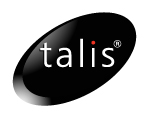The 17th International Conference on Knowledge Engineering and Knowledge Management is concerned with all aspects of eliciting, acquiring, modeling and managing knowledge, and its role in the construction of knowledge-intensive systems and services for the semantic web, knowledge management, e-business, natural language processing, intelligent information integration, etc.
Call for Workshop Proposals in PDF
The focus of the 17th edition of EKAW will be on "Knowledge Management and Engineering by the Masses".
Call for posters and demosImportant dates
New deadlinesSubmission: 18th of April 2010Notification: 28th of May 2010- Camera Ready: 18th of June 2010
- General and PC chairs:
- Sofia Pinto (INESC-ID, Lisbon)
- Philipp Cimiano (CITEC, Universität Bielefeld)
- Workshop chair: Siegfried Handschuh (DERI, NUI Galway)
- Tutorial chair: Victoria Uren (University of Sheffield)
- Demonstration chairs:
- Oscar Corcho (UPM, Madrid)
- Johanna Völker (University of Mannheim)
- Webmaster: Ícaro Medeiros (INESC-ID, Lisbon)
The proceedings of the conference will be published by Springer Verlag in the LNCS series. The LNCS volume will contain contributed papers. EKAW 2010 will also feature a tutorial and workshop program, as well as a poster and demo track. Poster/demo notes and workshop/tutorial notes will be published separately in a companion booklet.
Paper submission and reviewing for EKAW 2010 will be electronic via CMT System. Submissions should be 15 pages long (max) formatted according to Springer Verlag LNCS guidelines.
EKAW 2010 welcomes papers dealing with theoretical, methodological, experimental, and application aspects. In particular, but not exclusively, we solicit papers about methodologies, models, and tools for the following topics:
1) Knowledge Management
- Methodologies and tools for knowledge management
- Aspects of collaboration, distribution and evolution of knowledge in KM
- Advanced knowledge modeling languages and tools
- Best practices / experiences in KM
- Foundations of KM
- Entity-oriented approaches to KM
- Layered intelligence in knowledge management
- Provenance, reliability and trust in knowledge management
- Knowledge management for collaboration and decision support
- Methods for accelerating take-up of KM technologies
- Corporate memories for KM
- Case-based reasoning for KM
- Large-scale distributed reasoning
2) Knowledge Engineering and Acquisition
- Methodologies for knowledge engineering
- Knowledge acquisition, ontology learning
- Knowledge sharing
- Knowledge evolution
- Collaborative knowledge engineering
- Design patterns
- Techniques for knowledge acquisition based on machine learning, NLP etc.
- Uncertainty and vagueness in knowledge modeling
- Knowledge engineering and software engineering
- Ontology localization
- Ontology alignment
- Evolution of knowledge (including ontology evolution)
- Knowledge acquisition from non-ontological resources (thesauri, folksonomies, lexica etc.)
- Knowledge acquisition and knowledge integration from heterogeneous sources (multimedia and 3D data, databases, sensor data streams, social interaction data)
- Knowledge authoring and knowledge markup languages
- Ontology evaluation
- Dynamic, distributed and process knowledge (including web services, grid services, P2P systems, rules and business processes, problem solving methods, procedural knowledge)
- Agent-based approaches to knowledge management
- Knowledge mashups
3) Knowledge In Use:
knowledge management and engineering for- Retrieval and proactive delivery of pertinent knowledge
- Multimedia applications
- Life and E-sciences
- E-Government and public administration
- Health and medicine
- Automotive and manufacturing industry
- Semantic desktop applications
- The legal domain
- Cultural heritage applications
- Digital broadcasting and film, game and 3D media content production and sharing
- Digital libraries
- Virtual worlds
- Storytelling
- Management in critical applications
- Organizing user-contributed content
- Transition across organizations
4) Social and Cognitive Aspects of Knowledge Engineering
- Sustainability and cost analysis of knowledge engineering
- Human-knowledge interaction
- Cognitive systems and knowledge engineering
- Knowledge ecosystems
- Knowledge and social network analysis & modeling
- Knowledge in trust networks
- Personal sphere in knowledge engineering and management
- Collaborative and social approaches to knowledge management and acquisition
5) Special focus knowledge management and engineering by the masses
- Human-machine synergy in knowledge acquisition
- Incentives for knowledge creation and semantic annotation
- Enhancing human productivity (e.g. knowledge workers)
- Social and human factors in knowledge management
- Collective and collaborative intelligence in knowledge management
- Social tagging and folksonomies, social networks
- Web2.0 approaches to KM (including semantic wikis, folksonomies, etc.)
- Games with a Purpose and KM
- Linked Open Data / Web of Data
As an important difference to earlier conferences, EKAW will accept different types of papers. The papers will all have the same status and follow the same formatting guidelines in the proceedings but will receive special treatment during the reviewing phase. In particular, each paper type will be subject to own evaluation criteria. The PC will also make sure that there is a reasonable balance of the paper types accepted. At submission time the paper has to be clearly identified as belonging to one of the following categories.
A) Standard research papers
These are "standard" papers presenting a novel method, technique or analysis with appropriate empirical or other types of evaluation as proof-of concept. The main evaluation criteria here will be originality, technical soundness and validation.
B) In-use papers
Here we are expecting papers describing applications of knowledge management and engineering in real environments. Applications need to address a sufficiently interesting and challenging problem on real and large datasets, involving many users etc. The focus is less on the originality of the approach and more on presenting real, large-scale and complex systems that solve a significant problem. Technical details to understand how the problem is solved are required. Evaluations should involve real users of a system rather than representing a pure academic exercise. The papers will be evaluated according to the significance and practical relevance of the described research as well as with respect to the technical soundness of the described solution and accompanying evaluation.
C) Problem Analysis papers
We invite researchers to also publish problem analysis papers which do not present any novel method, technique or approach to solving a problem, but help to understand the problem itself. Understanding the characteristics of a problem itself is an important task in research and can benefit many people working on the same or at least similar problems. We expect in-depth discussions and analysis of a certain phenomenon or problem, with clear definitions as well as qualitative and quantitative analyzes of the main characteristics of the problem. We also expect a reasonable review of the state-of-the-art stating in how far current solutions fall short. Papers will mainly be evaluated with respect to how general and technically sound their problem analysis is and how useful it will be for other researchers working on the same problem. We expect that such papers will guide future research by highlighting critical assumptions, motivating the difficulty of a subproblem or explaining why current techniques are not sufficient, all corroborated by quantitative and qualitative arguments. Evaluation criteria will also include appropriate categorization of the problem area and description of present solutions and approaches; and appropriate description of the limitations of the present solutions and approaches.
D) Validation papers
A fundamental characteristic of research is that it should be reproducible. In some disciplines, reproduction of results by others is a basic research activity. We would like to encourage researchers to reproduce and validate methods, results and experiments etc. proposed by others before in a new context or application, on new datasets, under new assumptions etc. The goal is clearly to reach interesting and significant new conclusions about the method/approach in question that warrant a stand-alone publication. The reproduction of results should thus lead to new knowledge about the method in question or reveal inherent problems in the assumptions of the original research or limitations of previous solutions. Papers will be evaluated with respect to the soundness of the rationale for reproducing a certain approach as well as with respect to the new knowledge that is generated by reproducing the approach in question. A clear comparison between the results obtained through the reproduction and the original results are mandatory.










